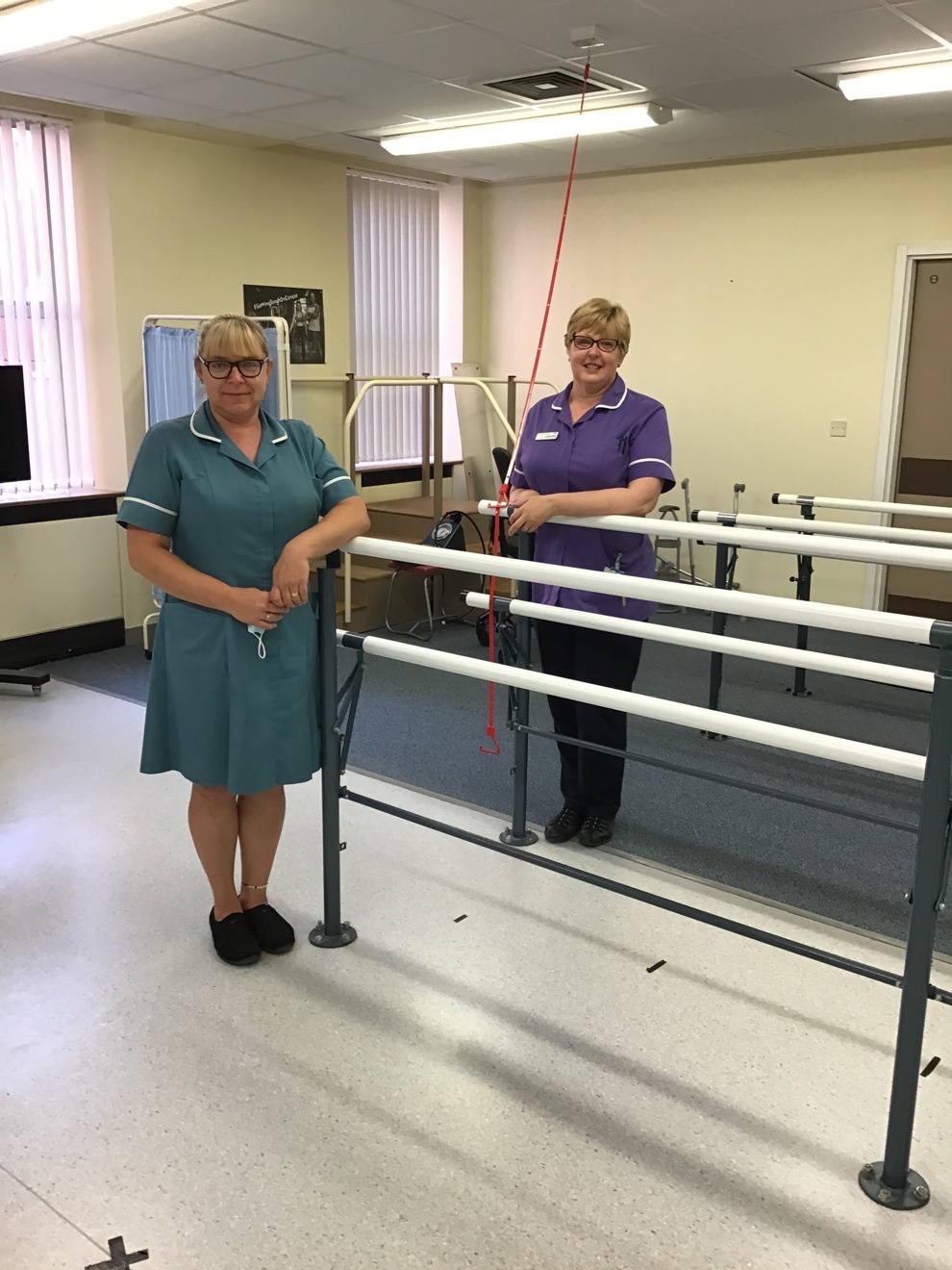The important role of the healthcare assistant
Following an article in Blesma Magazine about the many skilled technicians that make up an MDT – BSPO (Prosthetics) Brian Chenier spoke to Lisa Meredith, a Senior Healthcare worker, to find out how the role of nurses and healthcare assistants shapes the care of their patients.
‘I’ve been a senior healthcare worker now for a total of 18 years, seven of which have been here at the Specialist Rehabilitation Centre at Seacroft Hospital in Leeds.
My grandfather was an upper limb amputee, he was a member of Blesma and so they helped him in lots of ways when I was growing up; from providing mobility car to holidays in Blackpool. They were still watching out for my grandmother even after his passing.
The nursing staff here at Seacroft consists of a Clinical Nurse Specialist and a Senior Healthcare Assistant. We are responsible for wound care, such as looking at any sores or grazes for prosthetic limb users. As a regional centre we also take care of any other wounds which our patients present such as rubs, blisters and any concerns about their limb or other matters we can possibly help them with.

We provide lots of advice on how to look after their limb and their general wellbeing, as well as providing any help, advice or information that they may need on other services such as; Occupational Therapy, Psychology Service, Hot foot clinic, Wheelchair Services and more.
We organise and support our consultant’s clinics, making sure the patients are fit and well and can attend their appointments by telephoning them the day before they are due in. We check to make sure they are able to make their own way to their appointment or, if they need assistance, we can arrange transport though our admin team. We greet them on arrival and are available throughout their appointment to support them whilst they are on site.
Patients come to us after their amputation for rehab with our Physiotherapy team. We advise regarding treatment options for wound dressings, as many have unhealed surgical wounds and liaise with District Nurses for on-going care.
I love working here at this centre as we get to know all our patients and see them progress though their rehabilitation, adapting to life as an amputee. Patients know that we are here at any time and for them to contact us if they have any concerns regarding their amputation, we get to know them quite well, and they are as much a part of the centre as we are.
Having been here a number of years I still love it when one of our physiotherapy patients takes their first steps in their own prosthetic limb and then eventually walks out of our department, nothing gives me a greater thrill!
During Covid the NHS was under a lot of pressure, due to this our Prosthetic Service had to close for a while as NHS staff had to be redeployed to the main hospital sites. After only a few weeks I was very lucky to be brought back to the centre to help with emergency appointments and keep the centre open.
As we began to recover from the pandemic, restarting our clinics and opening up the department, even for limited numbers, has needed many changes. We had to rearrange our centre so that we could see patients in a safe Covid secure environment. We have now opened up to more patients and are getting back to some kind of normality which means the backlog is starting to ease.
And lastly, I would like to say at our centre we aim to be the best at what we do and to help in any way we can so that our patients feel they are welcomed and well looked after.
Lisa Meredith - Senior Healthcare Assistant
Leave a comment
Join fellow Members and supporters to exchange information, advice and tips. Before commenting please read our terms of use for commenting on articles.